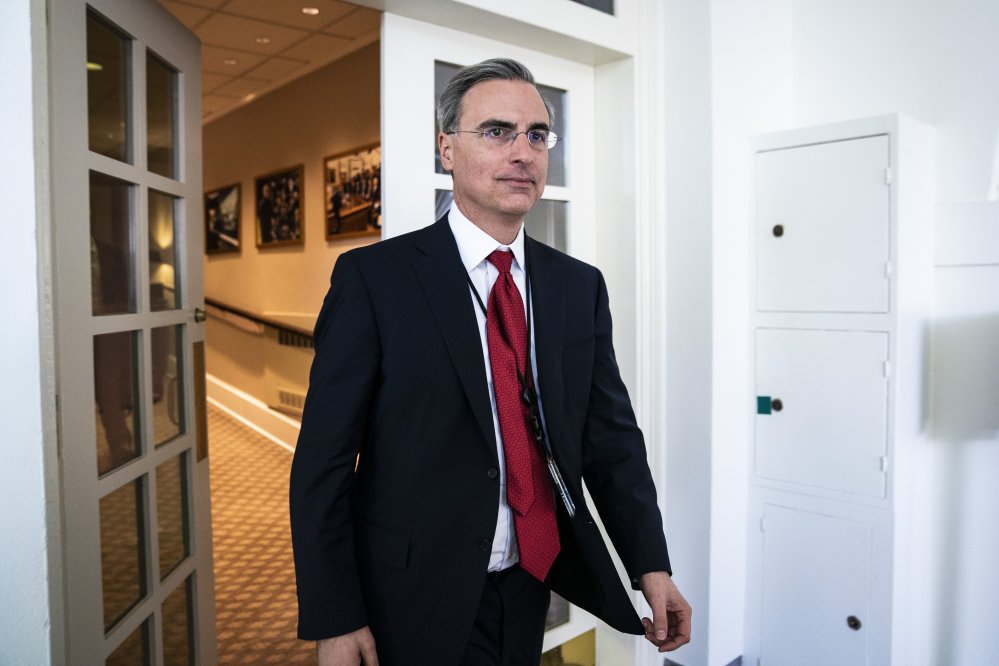Today brought a flurry of reporting about former White House Counsel Pat Cipollone’s testifying to the Select Committee this Friday. But there is some confusion about one detail: Will Cipollone be giving a transcribed interview, as CNN and The New York Times, have reported, or will he sit for a standard deposition? The Washington Post, for example, noted “it’s unclear what limits there may be on his closed-door testimony.”
You might be muttering, “Does this really matter to anyone but egghead lawyers?” But yes, it does matter for several reasons, not the least of which concerns who is allowed in the proverbial “Room Where It Happens.”
At the beginning of each Congress, the House Rules Committee issues “regulations” for the use of depositions by standing committees, or the regular, permanent committees, of the House. One of those regulations provides:
“Witnesses may be accompanied at a deposition by personal, nongovernmental counsel to advise them of their rights. Only members, committee staff designated by the chair or ranking minority member, an official reporter, the witness, and the witness’s counsel are permitted to attend. Observers or counsel for other persons, including counsel for government agencies, may not attend.”
In other words, at a House deposition, none of DOJ, the White House counsel’s office, or a president’s personal counsel has any right to attend, even if the person is a current or former executive branch official. The Select Committee has adopted these rules for its depositions too.
Note, however, when former White House Counsel Don McGahn testified to the House Judiciary Committee last year — after years of litigation resolved by agreement only after President Biden took office while Democrats retained the House — McGahn was not deposed. Instead, McGahn was merely interviewed, and the transcript reveals that both a Justice Department lawyer and a representative of Trump’s office were in the room.
That transcript also highlights another key difference between depositions and transcribed interviews. The former take place under oath; the latter do not. And therefore, McGahn never swore an oath. But House Judiciary had a cure for that: McGahn affirmed, upon questioning, that lying to Congress is a federal offense for which he could be prosecuted:














